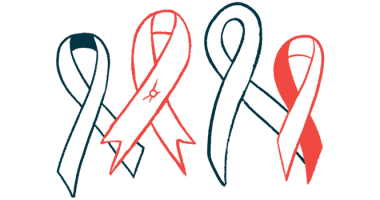Citing ‘Shock’ of Survey Findings, UK Foundation Presses for Change

A British Lung Foundation (BLF) report based on a landmark survey found that more than three-quarters of chronic obstructive pulmonary disease (COPD) patients in the U.K. are not receiving basic care.
The BLF also made a series of recommendations to U.K. governments and healthcare providers to help address that issue, as well as those related to diagnosis and quality of life.
The report, “Failing on the Fundamentals,” used data from a BLF survey of more than 8,000 COPD patients to gain insight into what it’s like to live with COPD and what care is provided. The survey, which was conducted between last December and May, is touted as the largest ever in the U.K. on the progressive lung condition that causes cough, wheezing, and shortness of breath.
Some 1.3 million U.K. residents have been diagnosed with COPD, and at least as many are thought to have the disease — the fifth most common cause of death in the U.K. — but don’t know it, according to the report. Due to the COVID-19 pandemic, there was a 51% reduction in COPD diagnoses last year compared with 2019, meaning that in England alone approximately 46,000 people remained undiagnosed.
While no cure for COPD exists, treatments are available that can ease symptoms, and the sooner such treatments begin, the better for patients and their quality of life.
“This was our first time doing a survey this large of people with COPD, so without other years of data to compare to, the results were a shock to us,” the BLF stated in a post about the report and its recommendations.
The survey revealed that 75.5% of COPD patients across the U.K. did not receive what the National Institute for Health and Care Excellence (NICE), which provides national guidance and advice to improve health and social care, considers fundamental COPD care in the U.K. The elements of such care include a self-management plan, vaccinations against flu and pneumonia, referral to smoking cessation services, pulmonary rehabilitation, and management of other medical conditions.
“Receipt of these five fundamentals was more likely when more time had passed since the initial diagnosis,” according to the report’s executive summary. “This may be because people with COPD have to learn how to navigate the NHS [National Health Service] to get the care that they need, and this is a time during which their health may deteriorate considerably. Alternately, it may be that healthcare professionals do not prioritize treatment until a patient has deteriorated. Neither scenario is acceptable.”
The survey also found that COPD has truncated the working lives of some 420,000 patients and that the disease has hurt patients’ social lives and kept them from leisure pursuits. Half of survey respondents reported that, since their diagnosis, their mental health has worsened, and 27.9% said they faced direct discrimination. Participants also cited social isolation, ostracism, and a reduction in opportunities as part of their COPD experience.
To combat these issues, the BLF has made recommendations including more funding for COPD prevention, diagnosis, and care.
Among recommendations regarding diagnosis, the organization is calling for primary cure to resume spirometry testing, the most common type of pulmonary function, or breathing, test. It’s also calling for the roll out of national breathlessness pathways, or specialized diagnostic programs for people with breathing disorders, and so-named community diagnostic centers in England.
Other recommendations include inclusion of questions about respiratory health as part of the NHS Health Check.
To improve patient care, the BLF also wants national health systems across the U.K. to ensure that all five NICE fundamentals of care are included as indicators in the Quality Outcomes Framework for COPD.
To reduce health disparities in COPD prevalence, diagnosis, and care, the organization is asking that governments and health services across the U.K. assure that such issues are a major part of national inequalities strategies. The BLF is also calling for COPD public awareness campaigns and more focus on smoking cessation programs.







